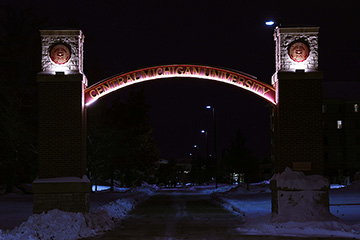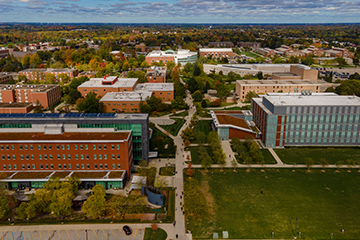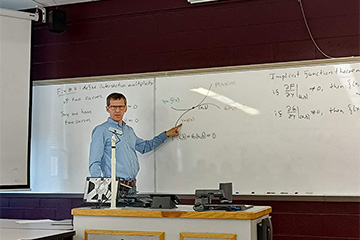Central Michigan University Institute for Great Lakes Research expands to Traverse City
On Thursday, July 11th, 2024, the Central Michigan University Institute for Great Lakes Research celebrated a significant milestone as Dr. Don Uzarski, the institute's director, officially moved into their satellite office on the second floor of the Traverse Connect Building, located on East Grandview Parkway in Traverse City, MI.
The IGLR journey began in 2010 when Great Lakes research was recognized as a key area of strength by CMU's administration following the receipt of the first of three $10 million grants dedicated to this purpose. Today, the IGLR involves faculty from five departments within the College of Science and Engineering—Biology, Chemistry, Earth and Atmospheric Sciences, Engineering and Geography and Environmental Studies. The institute is supported by 33 faculty members, 2 postdoctoral fellows, 7 technicians, 37 graduate students, 63 undergraduate students, 1 coordinator and 3 temporary staff and administrative personnel. Together, the College of Science and Engineering secures an average of $3 million to $5 million annually in external funding for Great Lakes research.
The IGLR and Dr. David Ford, dean of the CMU College of Science and Engineering, are currently in discussions with the leaders of the Fresh Water Research Center, a collaborative of various entities in the Grand Traverse region, about joining their effort. The IGLR would join partners and be situated on the Discovery Center and Pier property on West Grand Traverse Bay and aims to utilize this location as a year-round hub for Great Lakes research, bringing in research vessels and scientific equipment. This site would also serve as a vital water connection to the CMU Biological Station on Beaver Island, MI. Additionally, the IGLR hopes to expand its collaboration with the Great Lakes Fishery Commission and the FishPass project. Uzarski was recently added to the GLFC FishPass Advisory Board – Science Team. The Science Team is made up of 20 researchers from all of the FishPass partners, including the U.S. Fish and Wildlife Service, Michigan Department of Natural Resources, U.S. Army Corps of Engineers, Fisheries and Oceans Canada, U.S. Geological Survey, Grand Traverse Band of Ottawa and Chippewa Indians.
For more information on FishPass, visit glfc.org/fishpass.php.




